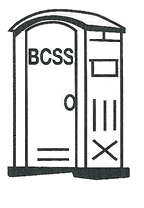COVID19 - Frequently Asked Questions (FAQ)
Who is At Risk
COVID-19 is a new disease and there is limited information regarding risk factors for severe disease. Based on currently available information and clinical expertise, older adults and people of any age who have serious underlying medical conditions might be at higher risk for severe illness from COVID-19.
Based upon available information to date, those at high-risk for severe illness from COVID-19 include:
People who live in a nursing home or long-term care facility
Other high-risk conditions could include:
People with chronic lung disease or moderate to severe asthma
People who have serious heart conditions
People who are immunocompromised including cancer treatment
People of any age with severe obesity (body mass index [BMI] >40) or certain underlying medical conditions, particularly if not well controlled, such as those with diabetes, renal failure, or liver disease might also be at risk
People who are pregnant should be monitored since they are known to be at risk with severe viral illness, however, to date data on COVID-19 has not shown increased risk
Many conditions can cause a person to be immunocompromised, including cancer treatment, smoking, bone marrow or organ transplantation, immune deficiencies, poorly controlled HIV or AIDS, and prolonged use of corticosteroids and other immune weakening medications
Signs & Symptoms of Infection
Reported illnesses have ranged from mild symptoms to severe illness and death for confirmed corona virus disease 2019 (COVID-19) cases. These symptoms may appear 2-14 days after exposure (based on the incubation period of MERS-CoV viruses).
Fever
Cough
Shortness of breath
When to Seek Medical Attention
If you develop emergency warning signs for COVID-19 get medical attention immediately. Emergency warning signs include*:
Trouble breathing
Persistent pain or pressure in the chest
New confusion or inability to arouse
Bluish lips or face
How it spreads
There is currently no vaccine to prevent corona virus disease 2019 (COVID-19).
The best way to prevent illness is to avoid being exposed to this virus.
The virus is thought to spread mainly from person-to-person.
Between people who are in close contact with one another (within about 6 feet).
Through respiratory droplets produced when an infected person coughs or sneezes.
These droplets can land in the mouths or noses of people who are nearby or possibly be inhaled into the lungs.
Steps to Protect Yourself
1. Clean your hands often
a. Washing your hands with soap and water for 20-30 seconds is the best way to remove the virus, especially after being in public spaces, coughing/blowing your nose, or sneezing
b. If soap is unavailable, use of hand sanitizer that is 60% alcohol or more is best
c. Avoid touching your face
2. Avoid close contact
a. Practice social distancing of 6 ft minimum, between yourself and others
b. Avoid close contact with people who are sick
3. Stay home if you’re sick
a. Stay at home if you are sick, except to receive medical care. Call ahead to your doctor’s office for instructions on how to proceed.
4. Cover your cough/sneeze
a. Cover your mouth and nose with a tissue when you cough or sneeze or use the inside of your elbow.
b. Throw used tissues into the trash
c. Immediately wash your hands with soap and water, or use hand sanitizer if hand washing is not possible
5. Clean and disinfect
a. Clean & disinfect frequently touched surfaces daily – includes tables, doorknobs/handles, light switches, countertops, steering wheels, phones, desks, keyboards, toilets, faucets, etc.
b. If surfaces are dirty, clean them with water and mild detergent where possible, prior to disinfection
**Most common EPA-registered household disinfectants will work. Use disinfectants appropriate for the surface to be cleaned
6. Wear a face mask if you’re sick
a. If you are sick you should wear a face mask when you are around other people (ex- sharing a room, inside a vehicle, etc.) and before you enter a healthcare provider’s office. If you are not able to wear a face mask, then you should do your best to cover your coughs and sneezes, and people who are caring for you should wear appropriate PPE
b. If you are not sick you do not need to wear a face mask unless you are caring for someone who is sick.
